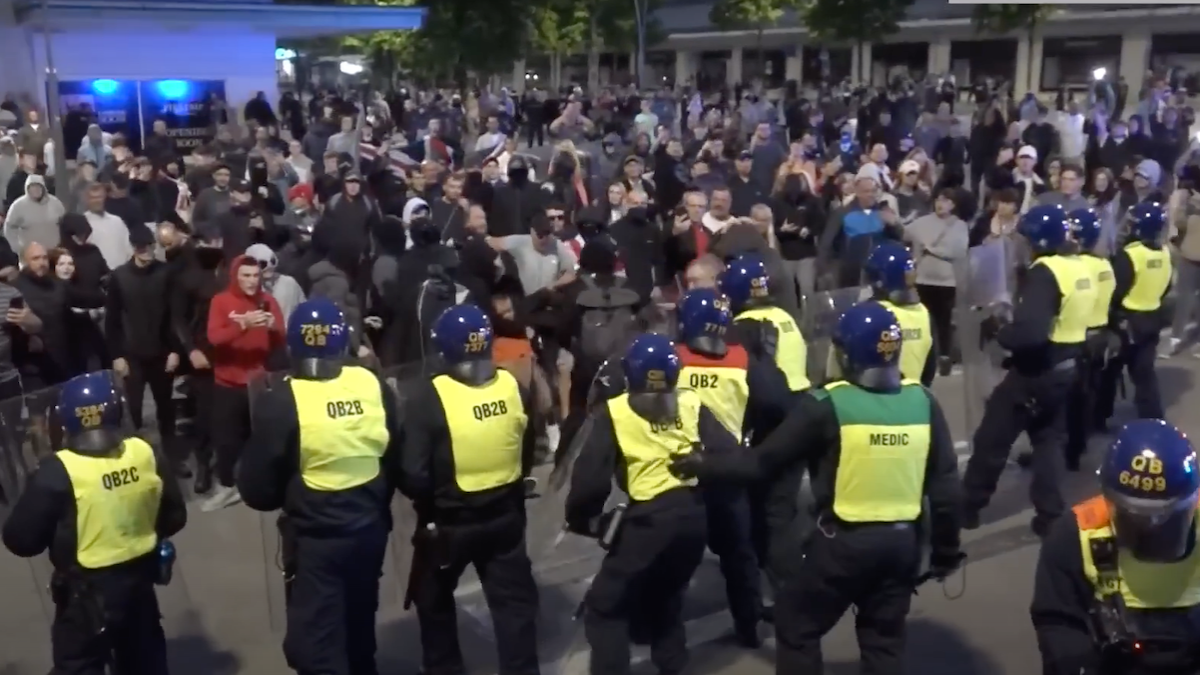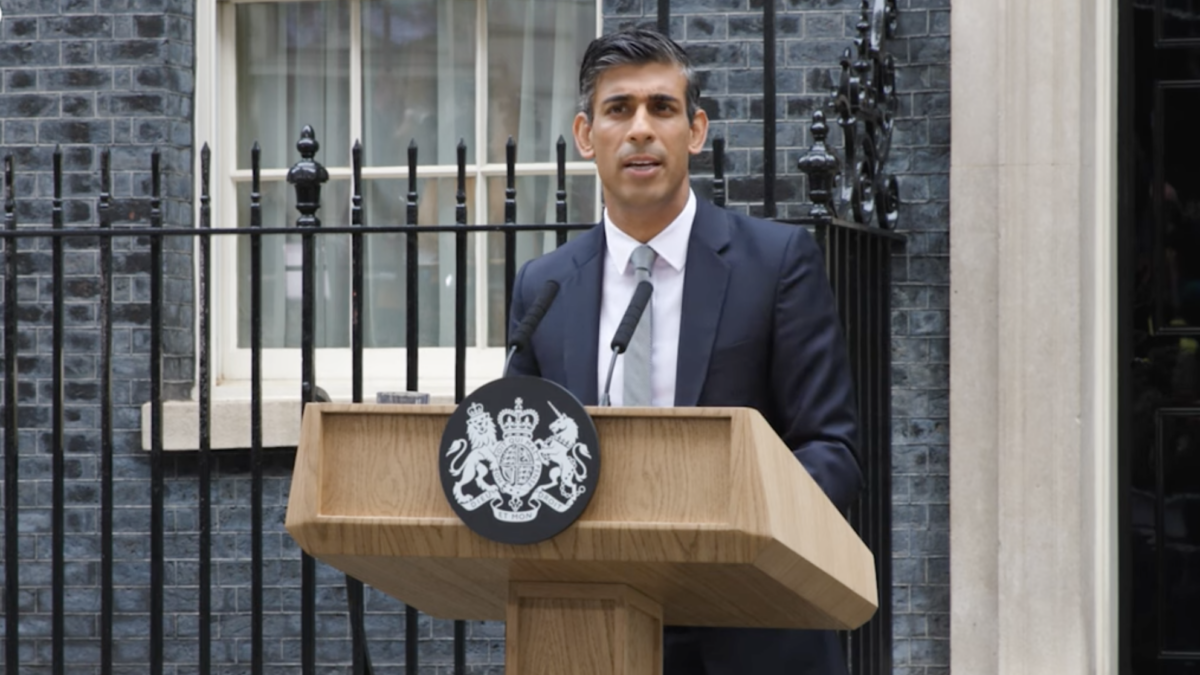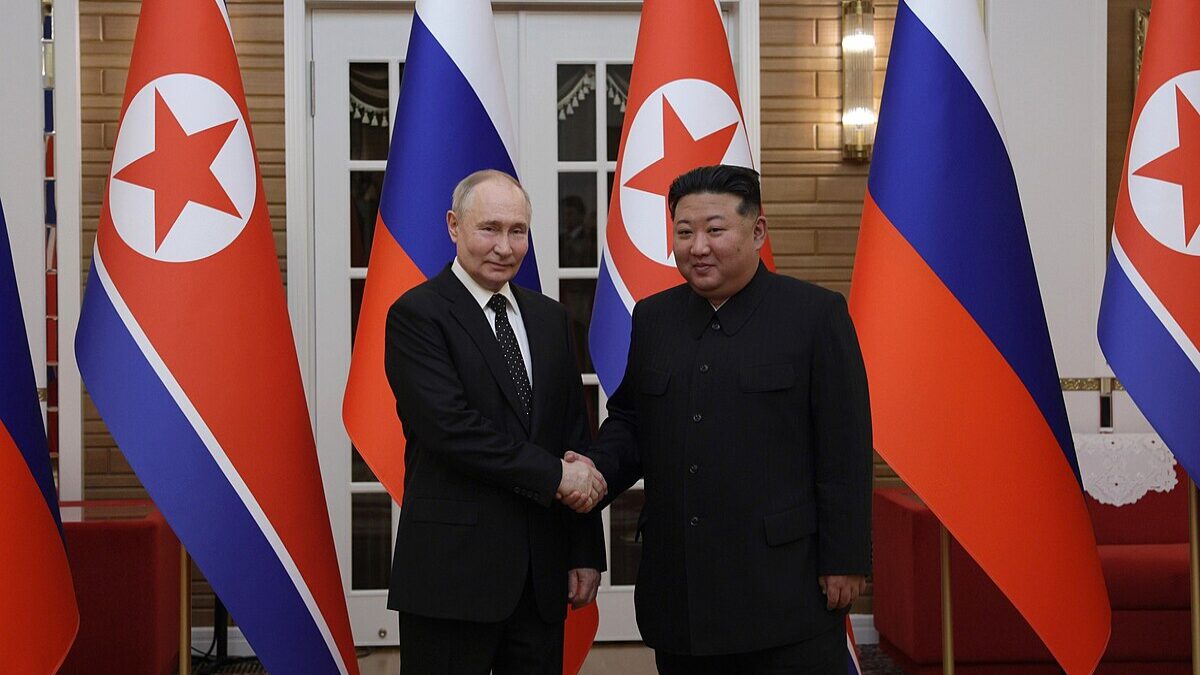
Recently I had the pleasure of attending a talk given by Major Gen. Meir Dagan, the former head of Mossad, Israel’s intelligence service, hosted by the University of Texas at Austin. The purpose of Dagan’s talk was to provide an insider’s perspective of goings on in the Middle East. Although many were as pleased, as I was, to hear him share his expansive knowledge of the history of Islam and the Islamic State (ISIS), also present was a group of students who came to make a political statement—and to espouse the new anti-Semitism of the millennial generation.
Given his background with Israel and Mossad, and knowing the far-Leftist tendency of academia, I was prepared for some form of pro-Palestinian demonstration. So was Dagan’s security detail. As the talk began, a row of 15 students (in a crowd of about 100) held signs of protest in front of their chest. Referring to the medal of courage Dagan earned for tackling a man with a live grenade while he was in service, the signs read “medal of courage,” with the letters r-a-g-e highlighted in red. Ten minutes into his talk, these students stood and began yelling. The leader of the group declared that anyone who stayed to listen to what Dagan had to say was complicit in the deaths of Palestinians. Then they left.
Once they walked out, Dagan announced, with utmost poise, “It’s funny, because I am for a Palestinian state.”
He proceeded to speak at length about the roots of Islamic fundamentalism, the history of Islam, and the creation of ISIS—its philosophy, structure, economics, and future. His talk was utterly uncontroversial. The protestors, most of whom were graduate students, were ill-informed about their target. Dagan did not come to discuss the Israeli-Palestinian conflict, nor does he deny the need for a Palestinian state. And yet, because he served his country as a soldier and an intelligence officer, he was branded an enemy.
Off-Target Attacks and Confused Outrage
Fueled by an ideology where Israel is 100 percent guilty and Palestine is 100 percent blameless, these students failed to see the shades of gray. They protested a man whom they agreed with more than they would like to admit, and who was not there to discuss the topic they were so anxious to weigh in on.
Their tactics and rhetoric were equally as confused. They used the medal Dagan received for honorable military action and turned it into an ad hominem attack based on acts unrelated to those that earned him the award. In their mind, such a heroic act could only be due to a kind of bloodlust because it was done in defense of Israel. Evoking “rage” was also done to provide a “true” psychological profile of this man, to show that his life’s works were done with the secret motivation of an uncontrollable anger and hatred toward Palestinians.
What it actually did was demonstrate their own naïveté about what it takes to maintain a state and the importance of providing security for it. They implied that there could be no other reason for filling the positions Dagan held, and that these are unnecessary roles to begin with. And yet, if their true concern was about those who died under Dagan’s command as head of an intelligence agency, then we should have seen similar protests last week when UT hosted an intelligence summit. Not surprisingly, the student body remained silent.
Their further proclamation that we were all complicit in Palestinians deaths by listening to what the general had to say was dubious—and telling. It first implied that by listening to the views of an opponent you are tacitly agreeing with him or her. If this is the case, any effort toward dialogue or discussion of ideas is impossible. We should insulate ourselves into pockets of like-minded thinkers and rail against the other side without any effort to understand their views. Heaven forbid that anyone should have his or her ideas challenged through the dangerous practice of hearing out your opponent.
This Wasn’t an Isolated Incident
Unfortunately, this is business as usual for the academy. This year has been full of similar, and often more severe, cases of ignoring or shouting down opposition. Witness the student and faculty protests that forced the dis-invitation or name-withdrawal of guest speakers such as Ayaan Hirsi Ali, Condoleezza Rice, and Christine Lagarde, to name just a few. Students, often prompted by their professors and certainly inspired by the content and dogma of their classes, rushed to shut out these thinkers that they have been trained to see as heretics. The often-used phrase of President Obama that “the conversation is over” echoes these protests when it comes to any number of highly controversial topics that divide our country. Is it surprising that the same tactic used by our president, who is a product of the academy, is the one that educated millennials have adopted?
The accusation of complicity further implied that, regardless of what someone has to say, if they are associated with certain countries or religions we ought to close our ears to them, regardless of their particular views. You shouldn’t even sit in their presence. Dagan was not at this talk to debate the Palestinian-Israeli conflict, nor is he against a two-state solution. And yet, his association with Israel and its military was enough for the protestors to try to shout him down and shame the audience.
This new anti-Semitism targets Jews not because of their religion but because of their religion’s association with Israeli nation. There is a litany of examples of anti-Semitic acts in recent months in Europe and the United States prompted by the latest Palestinian-Israeli conflict. Academics frame the issue as a black and white case of murder against innocents, sheltering underlying prejudices. Their millennial students are willing heirs to a legacy of militant leftism that rose up in the academy in the 1960s and ’70s. They are eager to have their own righteous cause and to adopt the strategies and rhetoric of their teachers. They protest Israel and Israelis with impunity because they act under the aegis of human rights activism.
Declaring an enemy based on nationality or religion and refusing to hear them out is dangerous. It leads to ceasing the exchange of ideas, silencing opposition, and ultimately to the belief that entire groups of people are not worth listening to, or worse are merely vehicles of irrational rage. It can even lead, as it has in the past, to fascism.









